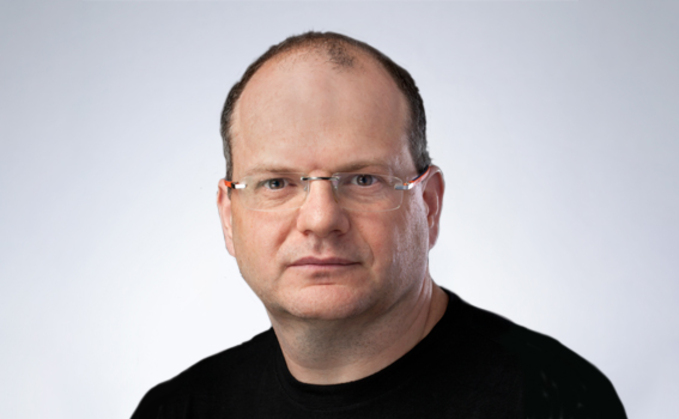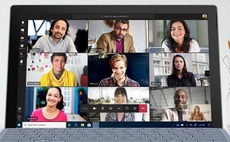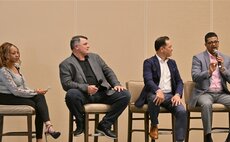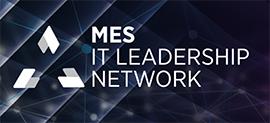
Check Point Software Technologies CEO and Co-Founder Gil Shwed
Gil Shwed, CEO and co-founder of Check Point Software Technologies, told MES Computing that the cybersecurity company has a lot to offer the midmarket segment, especially since resources may be tighter than at larger organizations.
"The midmarket is the one I love the most because you can get in and make an impact … immediately," he said.
The Israel-based company, which provides IT security software and hardware, has made some big moves over the past year, including its $490 million purchase last year of Perimeter 81, to boost its security access and service edge (SASE) offerings. It also acquired email security startup Avanan in 2021, CRN reported.
Check Point reported $2.4 billion in total revenue in 2023, a 4 percent increase year over year. The company's security subscriptions revenues last year were $981 million, a 14 percent increase year over year. And its stock has been a boon for shareholders, rising more than 31 percent over the past 12 months.
Shwed spoke with MES Computing last week at its CPX 2024 conference about the security needs of midmarket organizations, how security vendors like Check Point are working with government agencies to curb national cybersecurity threats, the next big potential attacks the company is monitoring, and more:
On The Unique Cybersecurity Needs of The Midmarket
"The cyber challenge for everyone is very similar, not identical, but is very similar," Shwed said.
Hackers, he said, are "targeting us all … they want to get into our networks," whether an organization has a few hundred employees, 1,000 or 2,000," he said.
Larger enterprises usually have sophisticated IT systems in place, typically running on multiple sites, he explained. While mid-sized companies usually have some of the same systems - maybe some using the cloud, some on-site - they usually lack the resources, the budget, or the full cybersecurity expertise that enterprises have.
They may not even have a CISO, he pointed out. "If there is somebody in charge, it's usually the same guy that's in charge of running the systems, running security and running everything," he said.
One midmarket cybersecurity need is simplified security management. "They need all of the elements the giant company has, on the other hand, they don't have the resources to manage them," he said.
For mid-sized businesses, Shwed advised them to integrate their security technologies into a single platform and work with a small number of vendors.
That's where "Check Point has a lot to offer," he said.
What IT Leaders Need To Know Now About Security
"First of all, that they are very vulnerable. Second, that they need to defend themselves," Shwed said.
He said there often isn't enough investment in preventing attacks.
"Maybe they believe that if something happens, ‘we'll kind of remediate that.' And unfortunately, when a cyber attack hits, you understand how big is the cost? So, I think people need to realize that we need to invest far more in prevention of the attacks than anything else," he said.
On Digital Transformation
Digital transformation, "is something we need to address … in every element of cybersecurity," he said.
"I think the new gateways that we launched [Check Point unveiled its latest line of AI-backed gateways at CPX] are very important and something that our customers were waiting for a long time. It's something that makes us lead in AI capabilities. At the same time what we've announced … on the cloud, on the endpoint, on all these elements … on SASE. The Remote Connectivity element is also … super relevant to mid-sized companies with one simple way to access their resources.
On Check Point's new Infinity AI Copilot Security Technology
"Now a company that has 10, five security admins, they can say, ‘wow this AI Copilot is amazing.' He said mid-sized companies may have an "amazing" security console, but it may be super complicated to manage.
Check Point announced AI Copilot at its event. It is natural-language AI with which security administrators can interact. For example, an admin could query AI Copilot about a logged security event like detected user access to a server. Copilot asks if that user should be given access and if the organization's security policy should be applied and will take action.
With AI Copilot, admins have a security tool that's "cool" and "friendly," but "still, there's so many features, so many options," Shwed said.
"Suddenly you can ask [CoPilot] ‘how do I do that?' and it tells you or does it for you, it's much easier."
On Security Vendors Collaborating With Governments
Many governments now consider cyber attacks as threats to national security. Recently, President Joe Biden signed an executive order aimed at protecting the nation's harbors and waterways from bad actors. In the UK, there are calls for the government to ban ransom payouts to hackers, comparing the act to funding terrorists.
Shwed was asked about Check Point's role in helping governments combat cyber threats.
Governments "are customers of ours," Shwed said. "It's usually not the government … it's the different ministries, different agencies - each one needs to defend itself," he said.
He said that Check Point often works with cyber authorities in various countries. "We advise them, or we share information about how to defend. Unfortunately, what's happening in governments is that [they] don't take a big enough role. I don't know if it's good or bad, I'm just saying it's a reality in controlling the defense of the country."
However, Shwed stressed the importance of keeping the internet open and not government regulated and said that's what makes the internet such an "open an innovative market."
He also said that while agencies are adept at collecting information about threats, the most significant problem is lack of enforcement.
"There is no enforcement arm," once information is gathered about a threat, he said. "There are no army or police or any other enforcement agency you can send [information] and stop it," he continued.
On Ransomware And Emerging Threats
Ransomware, Shwed said, is a "relatively new phenomenon." And while Shwed said he can't predict the future of the state of ransomware, those attacks "are becoming 10 times more sophisticated" in the last few years.
Blockchain attacks are among the newer threats Check Point is monitoring.
"People think because [blockchain] is very technological and algorithmically sophisticated, it's secure. It's not secure. We see it with so many exchanges being hacked … that is an area that we are keeping our eye on - how to secure it."
AI security is also on the company's radar. "How to not only use AI to do better security, but how do you secure the AI infrastructure itself?" Shwed said.



















